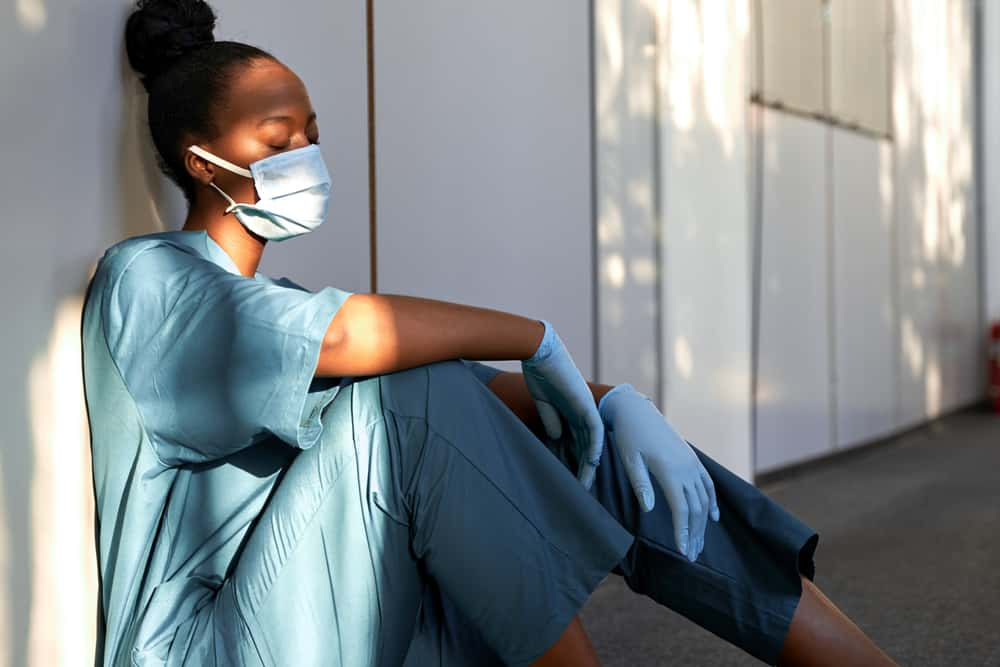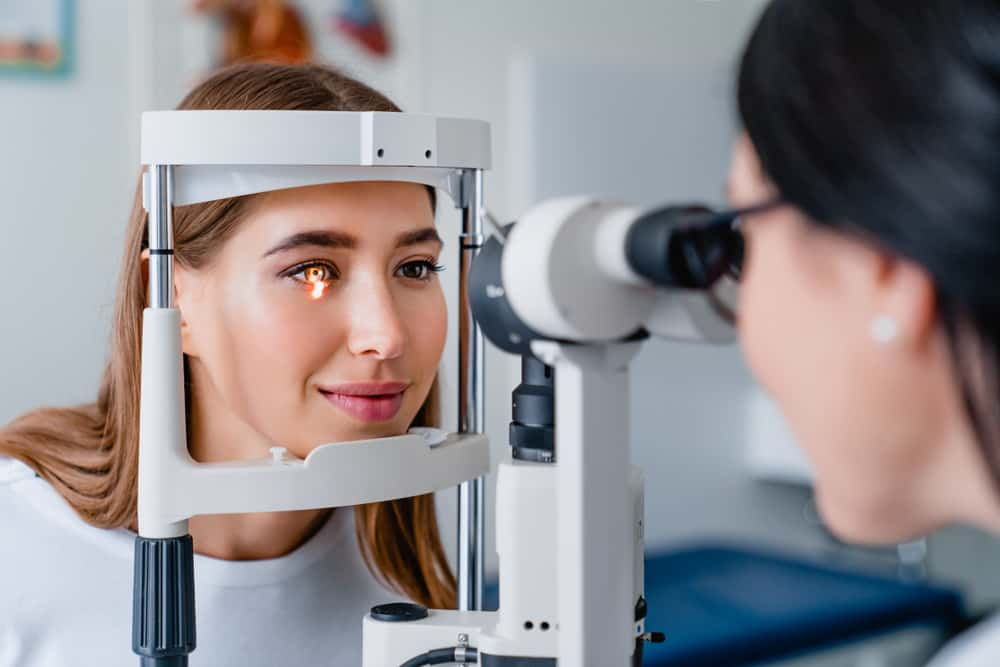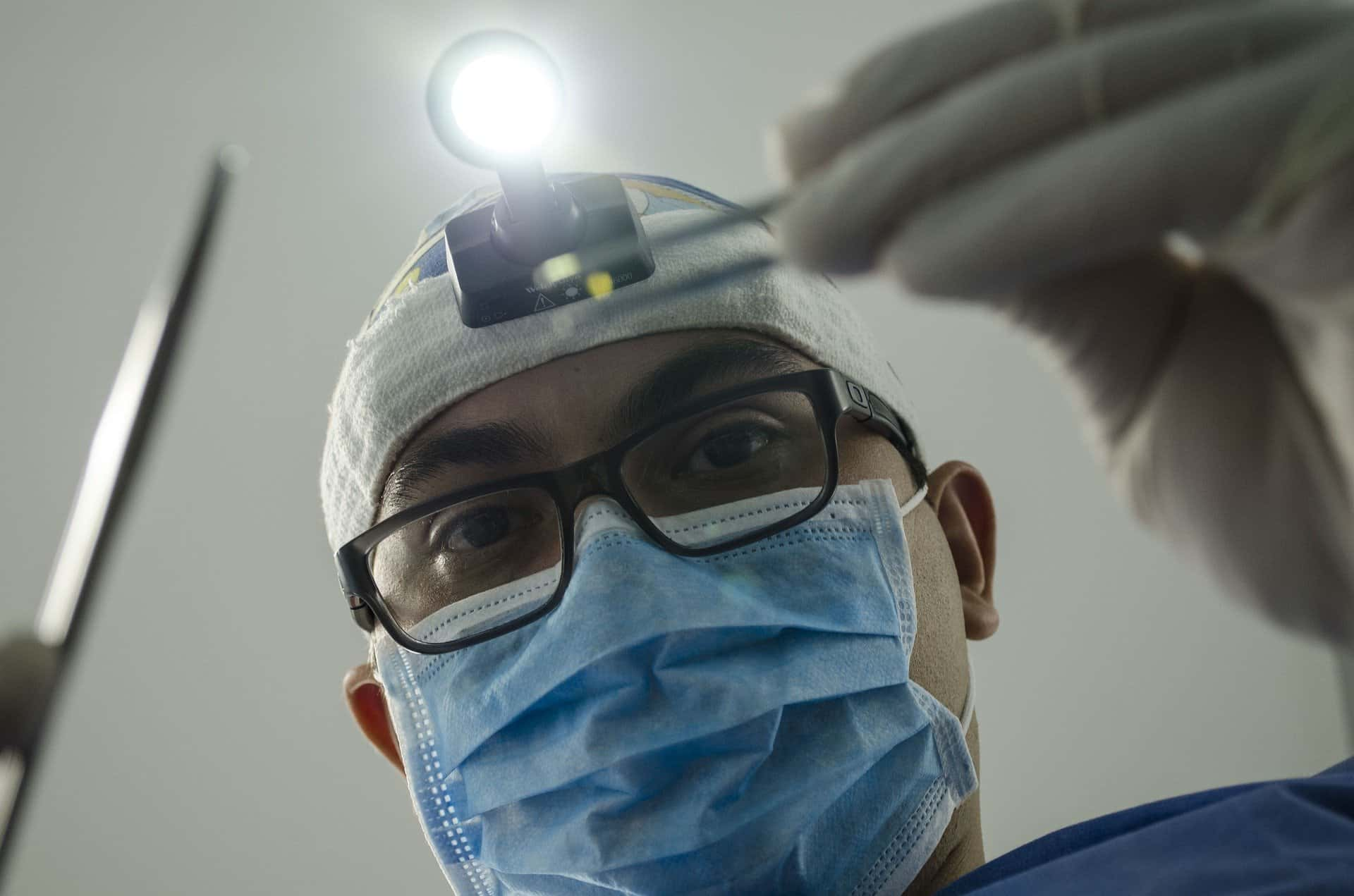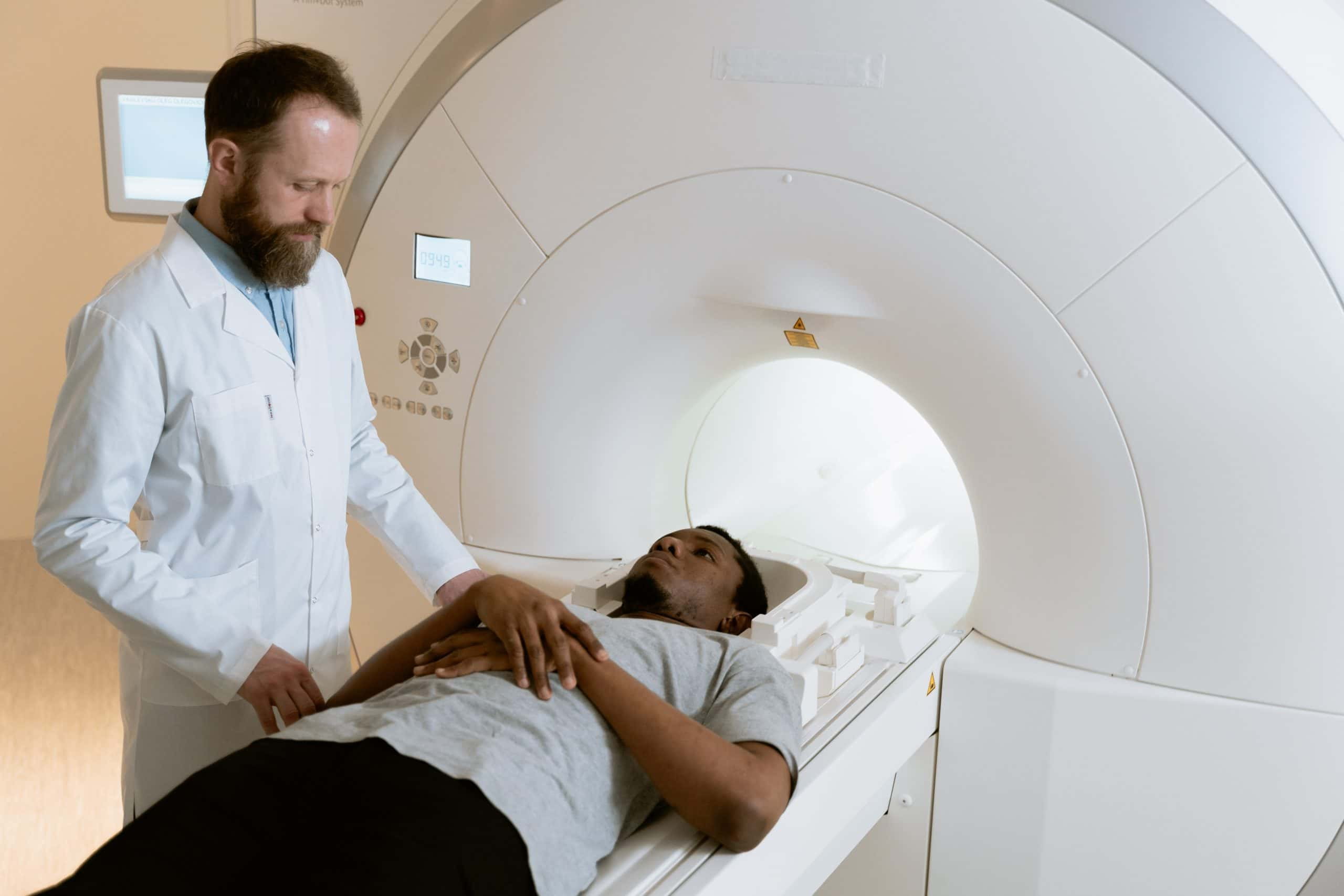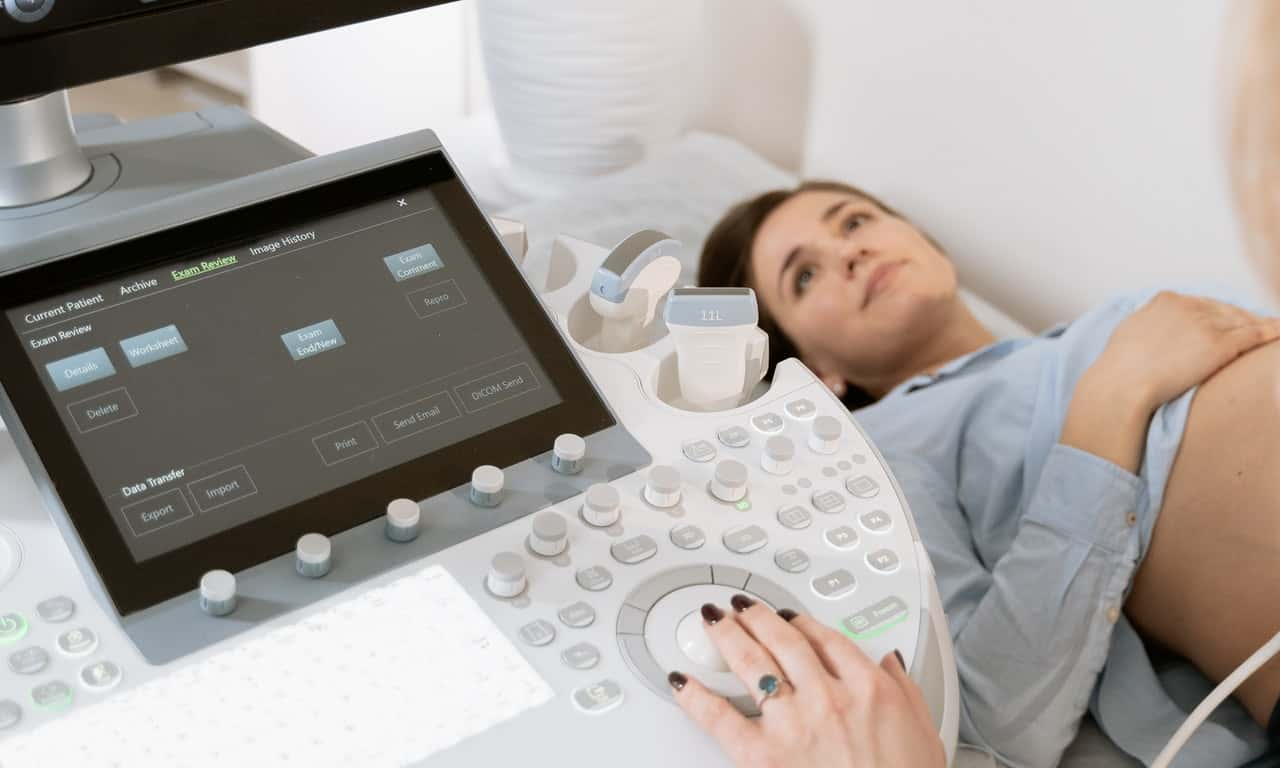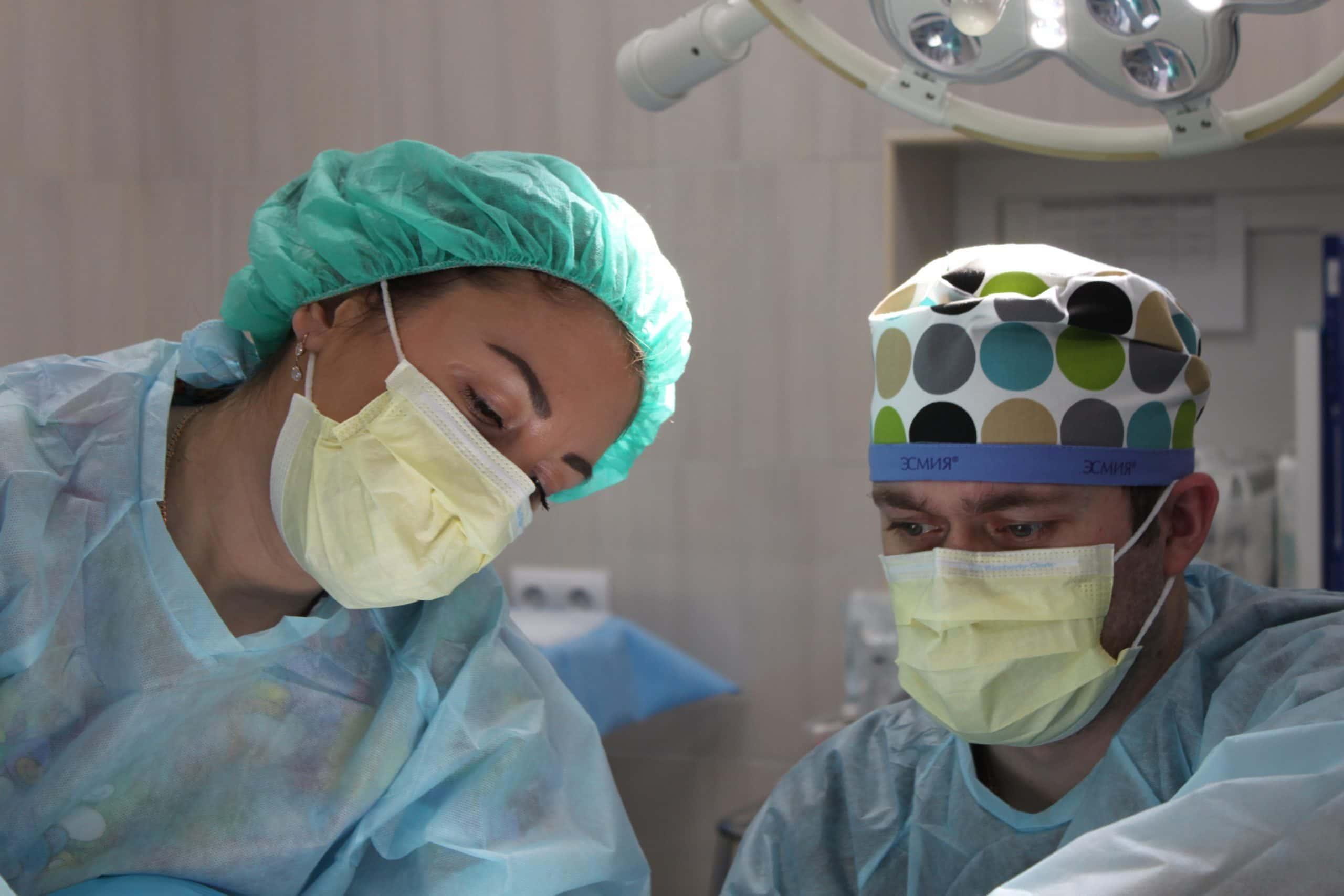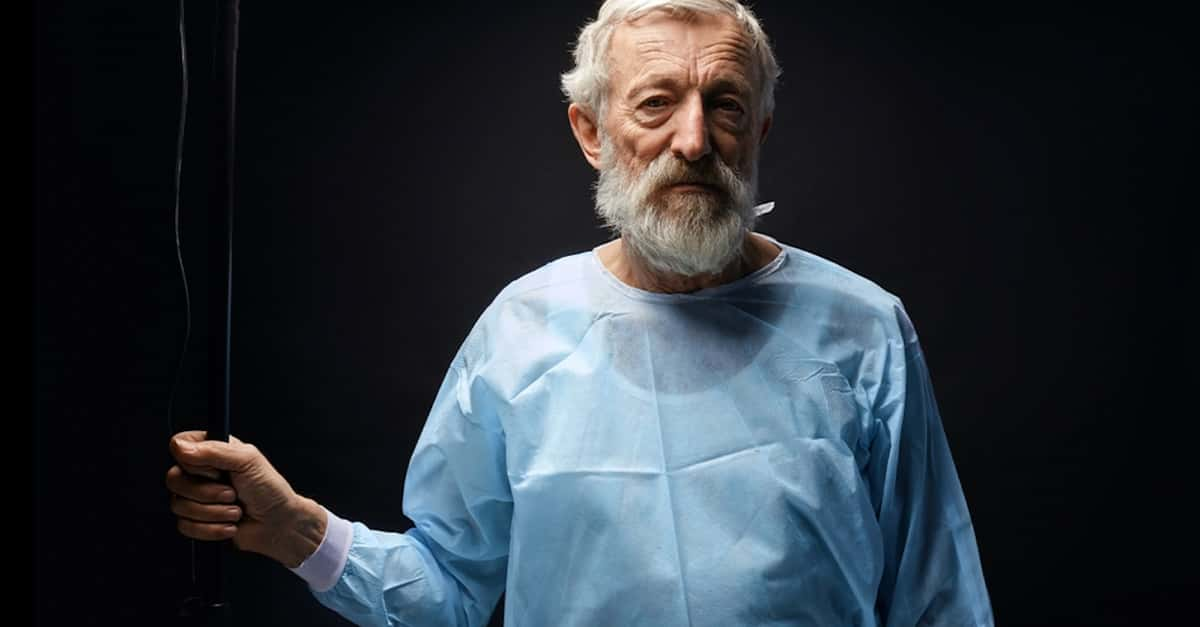Heading to the doctor when we aren’t feeling well is par for the course. We put our trust in medical professionals to assess, diagnose, and treat our ailments. However, sometimes, they mess up—big time! Patients have their complaints dismissed, their illnesses misdiagnosed, and medications misprescribed. Here physicians and patients share some stories of medical blunders that would leave anyone scared for their life.
1. This Doctor Was Pure Poison
I had a 2-year-old patient show up in the ER. She and her dad had been out in the fields in a small town several hours away from the nearest big city, where I worked. The dad took the child to the ER in the small town with an obvious snake bite. I'm still so furious when I think about what the doctor did. He shrugged and said, “Eh, it’s ok. She probably didn’t get envenomated,” and didn’t give the patient antivenom, which they had on-site.
They then elected to send the child to our hospital by ambulance instead of by helicopter. Several hours later, the patient showed up at our hospital coding and ended up not making it.
2. A Gut-Wrenching Ordeal
From the age of about 17, I started getting chronic abdominal pain every day and terrible gut problems. It was so bad, and I couldn’t eat much. I would get fluctuating diarrhea and constipation, and menstruation became more and more painful. I started losing enormous amounts of blood, despite being incredibly small. It seemed like a gynecological problem.
However, my doctor, who was a woman, insisted it was anxiety and said she "wouldn't bother testing for or treating a gynecological problem unless I was older and was having trouble conceiving." I'll never forgive her for that. Over the next few years, my gut and uterus symptoms slowly deteriorated. I was bounced around the system to dozens of different specialists.
I was told it was just stress, anxiety, even possible pregnancy, and was told to take various over-the-counter products. Meanwhile, my gut function slowly ground to a halt. A functional gut test showed it took me six hours to pass an egg sandwich when it should have taken 90 minutes. I was losing weight and bowel control. No treatment seemed to work.
At 24, I was unable to work because I was literally uncontrollably pooping my pants. Doctors suggested I should seek therapy and suggested I was exaggerating. One day, I saw a new general practitioner for some regular health tests. I received an abnormal Pap smear. Within two weeks, I went in for an exploratory laparoscopy to rule out cervical cancer.
They discovered I was riddled with endometriosis—on my bowel, on my cervix, on my perineum, on some ligaments, even in my gall bladder. I also had an ovarian cyst the size of a tennis ball. I had excisions and treatment and was able to get my gut function back within three months, although I would never be able to have children.
If the doctor I went to at 17 had just done her job, I wouldn't have lost seven years of my life, my gall bladder, fertility, and mental health.
3. Her Decline Was Maddening
During my residency, we had a lady in her 60s who was getting progressively more forgetful, just overall declining and getting less and less able to take care of herself. She saw her primary care physician, who diagnosed her with dementia, and a neurologist who agreed with that diagnosis. Although she could not provide an accurate history, after talking to her family and friends, it became apparent that her symptoms were progressing unusually fast.
But something was just...wrong. I remember seeing the point where her new hair growth met her bright red hair dye and also her grown-out nails with hot pink polish. I thought that it obviously wasn't too long ago that she was not only taking care of herself, but going to get her hair and nails done. However, the lady who was in front of me was far from that.
The neurologist I was training with recognized this and had her admitted. He did every test, including a lumbar puncture. The workup eventually showed Creutzfeld Jakob disease—mad cow disease, which unfortunately has no treatment. She passed a few months later, but at least we were able to prepare her family for her inevitable decline so that they could make the proper arrangements.
4. Keeping Abreast Of My Health
When I was 26 years old, I found a lump in my breast. I had learned how to do self-checks, and I knew this lump felt different than a cyst. It felt exactly like the tumors I had been taught to recognize. The first doctor said, "You're too young for breast cancer.” I didn't accept that and went to a second doctor where I got, "It hurts when I mash it, right?" It didn’t.
They also said, "It gets bigger with your period, right?" I told them, no, but they insisted, saying, "Sure it does!" The third doctor told me, "You'll have an ugly scar if I biopsy it." By this point, I wanted to scream. I finally told the fourth doctor to call 9-1-1 to get me off his table because I wasn't leaving without scheduling a biopsy. It turned out I had Stage 2 cancer. After surgery, nine months of chemo, three months of radiation, and being told I couldn't have kids, I survived, had three kids, and had a long life.
5. They Finally Saw The Problem
For years I suffered from migraines. They were mainly behind my eyes, but I chalked it up to stress and hormones, as did the neurologist I was seeing for them. She seemed annoyed that I kept saying the pain was behind my eyes, in my temples, and the pressure was insane. She gave me Imitrex and sent me on my way. I went to visit my eye doctor for a check-up.
She asked if I got headaches. I told her yes, but it seemed like I always had one. She told me my optic nerves were very inflamed, and excess spinal fluid or a tumor could be the cause. She sent me to a neuro-ophthalmologist, where I had a brain MRI, a spinal tap, and new medication to help keep my spinal fluid in check. The neuro-ophthalmologist told me I was about six months away from having vision loss and that I was lucky I mentioned my headaches to my eye doctor.
6. Dental Dilemma
I went to a dentist's office for several years and was repeatedly told to get braces and remove my wisdom teeth. Both of these posed an issue since I played trumpet for a living. Performing at a professional level would have been difficult to impossible with braces, and having my wisdom teeth out would put me out of work for at least a month during recovery. I told this to my dentist repeatedly.
I decided to get a second opinion about the wisdom teeth, so I went to an oral surgeon to have them look at it. That's when I finally learned the truth. They took X-rays and looked at the records from my dentist. He said, “So, you're experiencing a lot of pain in your wisdom teeth, according to your record.” I told him I was not and never had. He then told me, “So, I'm just going to assume your regular dentist falsified the rest of your record too, so I can put this folder down and do my job.”
He then explained that the way my wisdom teeth came in, they were sitting on a nerve that would be next to impossible not to cut in the process of removal. That would leave me without feeling in the lower half of my face for the rest of my life—obviously a major issue, given my career. I was advised not to worry about them if I was not in pain.
I eventually needed to extract a tooth adjacent to one of my wisdom teeth, which my regular dentist completely blew off when I asked about it. I never went back to my original dentist.
7. It Wasn’t All In Her Head
During my psychiatry residency, I was working in the Psych ER when we got a transfer from the main ER. Her family had brought her in for altered mental status that had been getting gradually worse over the previous two weeks. All her labs and vitals were normal, so she had been "cleared" by the ER doctors, and I was told she was likely having "a mental break-down" or psychotic episode.
I went to assess her. She was non-responsive, staring off into space, crying and shaking her head back and forth and mumbling. She could not answer any questions and seemed to be having a tremendous amount of anxiety. One of the biggest lessons my mentors taught me was to assume that a change in mental status was always a medical condition until proven otherwise. Then you could think about psychiatric causes.
Within a couple of seconds of seeing her, I had an intense gut feeling. This was not psychiatric in nature. I looked through her chart and saw she had a history of blood clots in the past. Her vitals were rechecked, and again they were totally normal. At that point, I made an executive decision and ordered a stat CT of her chest to look for a possible clot.
The technicians who came to take her for the study were slightly confused as to why a psych resident was ordering this. The radiology team even called me and wanted to make sure I had not ordered it by mistake. Thirty minutes later, I got a call from the on-call radiology resident, and she said, "Are you the psych resident that ordered this CT?"
I said I was, thinking I was about to get some comment about wasting their time. She continued, "And this patient is in the psych ER?" I confirmed. She then told me, "Well, you better call the ER and have her transferred STAT because this lady has the most massive pulmonary embolism I have ever seen and will likely code any second.”
With that, we transferred her back to the ER. She was admitted to the hospital and treated for her clot, and within a few days, she was back to normal. From then on, whenever someone would make a joke about psychiatrists not being "real" doctors, I would tell them this story, and that would settle it.
8. My Original Diagnosis Was Hard To Swallow
When I was in college, I got to where I couldn’t swallow. It started with difficulty swallowing and progressed to me having to swallow bites of food multiple times and regurgitating it. It then got to where all I could swallow were broths and mashed potatoes with no chunks. I went to the doctor numerous times and was told every time it was acid reflux and part of my anxiety disorder. I had lost 30 pounds and was just generally miserable.
Finally, my grandma was tired of watching me be sick all the time, so she called the GI doctor herself. They said we needed a referral, but she explained the situation, and they got me in the next day. They did an endoscopy and found my esophagus was 95% occluded at the gastroesophageal sphincter. For some reason, some of my primary doctor’s notes ended up in my discharge paperwork. They showed me, and I've never been so angry.
She had told them it was acid reflux and that I was being over-dramatic. She stated she did not recommend they do the procedure. I switched doctors.
9. Mixed-Up Meds
I was verifying a second refill of a prescription for a patient when I realized that a different pharmacist, who had verified it a month prior, had mistakenly allowed Pantoprazole to be dispensed instead of Paroxetine. It wasn’t fun explaining to the patient that instead of getting an antidepressant for the last month, he had been given medication for acid reflux. It had been a new medication for him, so he didn’t know the name and didn’t question it.
10. His Symptoms Didn’t Fit The Mold
I had a patient who was thought to have a fungal infection in the chest. However, after many pulses with an antifungal, the plaque was still present and growing. So, the original physician called me to check the patient. The chest plaque was indeed very suggestive of a fungal infection. The direct examination even confirmed the existence of the fungus, but the treatments were doing nothing. When I rechecked the file, lo and behold, their leukocyte count was quite low. A quick HIV test later, the patient was diagnosed with AIDS on top of the fungus.
11. Matters Of The Heart
While in residency, I saw a cardiologist miss a heart attack. By the time the patient came to us, some of the muscles supporting one of his heart valves had completely perished, and he was in cardiogenic shock. Basically, his heart function was so bad that it wasn't circulating his blood enough to support life. It was awful, but happily, he made it through.
12. A Grave Mistake
My wife found a lump under her breast that was concerning. It took her about two months to get a proper appointment to have it looked at. The doctor diagnosed it as a cyst and fibroadenoma. She drained the lump, and it was fine. It grew back a week later and was bigger. Finally, after being in pain for weeks, the doctor decided to remove it. Upon going in for the check-up after surgery, it turned out she had Stage 2A triple-negative breast cancer.
The surgeon was floored. The most upsetting thing was that while her primary doctor was on holiday, another male doctor told her, "Any surgery would be merely cosmetic, and the lump clearly didn't bother her because he could touch it." Despite doing eight months of therapy, the cancer returned seven months later and ultimately took her life after it spread to her brain and spinal fluid. She had switched doctors twice because they wouldn't take her lump seriously. She was only 27 years old.
13. This Poor Stiff Got Misdiagnosed
I had a young student who was complaining about his neck feeling stiff. He went to a doctor some days before and was told he was having "joint pains" that would pass with some common anti-inflammatory meds. When I visited him, I saw many of the lymph nodes in his neck were swollen, which probably caused the stiffness. I sent him right away to have a chest X-ray done that showed a substantial mediastinal mass, suggestive of lymphoma.
14. This Diagnosis Was As Hard As Nails
I was working nights, and a patient came in for a nailbed repair and insisted on having it done under general anesthesia. He had no clue what was coming. He aspirated as he was going under, so we did a chest X-ray to see if he had any spit or blood in his lungs. We didn't know that prior to this emergency surgery, he had been going to his doctor for over six months complaining about chest tightness.
They had put him on various asthma medications, but none had any effect on him. The X-ray showed a giant mass in his left lung. We kept him asleep and transferred him to the ICU. His wife and three-year-old daughter were waiting for him in the ward. We had to tell them where he'd gone, why he'd gone there, and what was going to happen. He lost his life to lung cancer within the month.
15. We Found The Root Of The Problem
I worked as a dental assistant and had a patient come in whose color was off. His jaw and a tooth hurt. He had just come from the doctor, who told him to see us. I was suspicious of a heart attack. I put the pulse oximeter on him and almost fainted when I saw 82%. I grabbed our emergency high-flow oxygen yelled for the AED and an ambulance.
The guy was having a heart attack. Luckily, he survived and brought me a big old heart-shaped box of chocolate on Valentine’s Day. I had never been so scared or angry at another person before. The dentist I worked for called his doctor and said, “My 25-year-old assistant just saved your patient’s life.”
16. She Got Off On The Wrong Foot
I worked in EMS. We got a call for a female with leg pain. When we arrived on the scene, this woman’s leg was three times the size of her other one, blue and purple, and she had no pulse in her foot. A few days prior, she had fallen on some ice, and the urgent care she went to didn’t do any X-rays. They told her she had a sprain and gave her a walking boot. In reality, her tibia and fibula were both so severely fractured they were cutting the blood vessels and muscle tissue. She lost her foot.
17. I Should Have Trusted My Gut
When I was in training, I saw a child suspected of having meningitis. Although I was new to pediatric medicine, I had a gut feeling just by looking at the 4-year-old patient that he was too sick to have a regular childhood illness. The thing that tipped me off was the child was having a slight delay in his pupillary reflexes. Something was seriously wrong.
After seeing him, I asked the head pediatrician to do a lumbar puncture to investigate the spinal fluid for signs of infection. She said there was no need, and all signs pointed to some airborne virus that was roaming around at that time. She believed that an unnecessary lumbar puncture could scar a child for life and whatnot.
While I disagreed, I mistakenly doubted my own assessment and assumed the doctor with more experience surely knew better than me. I shrugged, wrote everything down in the dossier, and asked the pediatrician to read my evaluation afterward. I went home after an exhausting evening, having worked almost 14 hours straight.
Three days later, the child returned with fulminant meningitis that had taken a bad turn. When discussing the patient, she remarked she noticed abnormal pupillary reflexes in the patient. Not only did she discount my suggestion of doing a diagnostic lumbar puncture, but she also did not read my evaluation of the patient three days earlier.
18. The Doctor’s Dismissiveness Was Galling
My sister had her gallbladder out. She had routine surgery and two days later woke up at 4 AM in searing pain. She went to the ER by ambulance, and I met her there. The ER docs were all convinced she was a drug seeker and did not even conduct a physical exam beyond taking her vitals. They told her to shut her up because she was just yelling, “Help me! Help me! I'm dying!”
They eventually did an MRI but said it was negative and sent her home. She didn’t want to leave and insisted something was terribly wrong. However, they said they would call security and have her thrown out. She had no history of drug or alcohol abuse. She continued to get worse at home and the next day went to a different hospital.
They did a workup and found that the metal clip that closed off her bile duct had cut right through the tissue. She had a large bile leak that was burning all her abdominal organs. She had to have three surgeries to fix it and was hospitalized for nine days. She was left with chronic pain from adhesions and chemical burns. But that's not even the worst part somehow.
When the new hospital finally acquired the MRI from the initial ER visit, she was told that the leak was small but clearly visible in that image.
19. He Was Full Of It
When my son was two years old, he wasn't pooping normally. His stomach was getting bigger, and he seemed to always take in more food than was coming out. We brought it up with our family doctor, who suggested a laxative or some natural remedy. A few months later, and with no improvement, we brought our son back to our family doctor.
She told us the same thing again. I asked her, "What if it doesn't improve?" She replied, "It definitely will." It did not. After a few visits to the ER and a lot of doctors frantically asking a lot of questions, we found out he had a condition called Hirschsprung's disease, where the nerve cells in his colon are non-existent, so his body didn’t know when he needed to poop.
He went in for emergency surgery. The surgeon was furious at how our family doctor handled things. A short while later, the family doctor decided to retire early. I suspected the surgeon reported her mishandling things.
20. A Mysterious Case Of Broken Ribs
My best friend was in her late twenties and felt constant irritation in her stomach. She went to see several doctors over the course of almost three years, and they all dismissed her, saying she had an irritable bowel. She would try a new diet every few months, but nothing helped. One day she called me and told me she had broken her ribs. She didn't know how it happened, but she started having horrible pain, and her doctor said her ribs must have been fractured.
When the pain became too much to bear, she went to the ER and got a CT scan. She didn’t have broken ribs. She had stage 4 colon cancer with 4-inch tumors in her abdomen that were compressing her organs and causing the pain. She only lasted a few more months. If one of the many doctors she had seen had taken her seriously and sent her to get a colonoscopy, she'd probably still be alive.
21. Itching For Answers
I went to three different doctors to get checked for a rash I had developed over my entire torso and legs. It was so bizarre. It didn't itch or anything, but it was noticeable and just stopped at my elbow and knees. One doctor said it was eczema and gave me some cream which did nothing. I went and saw a different doctor, who told me it was probably an allergy. They recommended I change my detergent.
I did, but again, nothing happened. I went back again to a third doctor, who reckoned it was pityriasis rosea, which is pretty benign. He told me to wait it out, even though I had it for the best part of three months. Soon after, I went to the clinic for my regular checkup. The nurse took one look at me and said I had syphilis. So, she asked if the student nurse could come in and look. Two painful injections later, it cleared up.
22. Her Life Was Resting On My Shoulders
While I was doing a trauma and orthopedics rotation at a small hospital, I was asked by the medical team to look at a 67-year-old lady who had fallen at home. She had some shoulder pain. The emergency department had X-rayed her and ruled out a broken collar bone and shoulder. She still had pain, and the medics didn't wholly trust the emergency department, so they asked me to have a look.
I looked at the X-ray and found nothing broken. Then I saw the patient. Her shoulder was a bit bruised, but she had a good range of movement. When I felt her shoulder a bit more, I felt some weird lumpiness, like bubble wrap, under the skin. It suddenly hit me: "Holy cow, this is surgical emphysema." I went back to the shoulder X-ray and looked at the snippet of the lung in the film.
I saw a punctured lung and a hint of some broken ribs. The patient went in for an emergency chest drain and was transferred to the trauma center. Luckily, the patient survived. I don't think the emergency room doctors had even laid hands on the patient. They just simply looked at the X-rays and referred on.
23. Multiple Mental Health Mishaps
After we got married, my husband and I struggled a lot because he would go through phases where he behaved like a different person. I had noticed it before marriage, but then I stopped working, and it became clear that he was struggling with something. He had had a lot of problems his whole life, including several bouts with the law.
He got a variety of diagnoses, such as narcissistic personality disorder and sociopathy but was never really treated or medicated. One doctor told him he was untreatable. Despite all of this, my husband got out of prison, stayed sober for years, earned a bachelor's degree, graduated with honors, and moved to a new city. However, he started struggling again with alcoholism before I met him. We partied A LOT at the beginning of our relationship.
When we got married, my husband would periodically act totally crazy and then normal after about two weeks. I started charting his behavior and statements he made because he would say things like, “I never need more than a few hours of sleep!” Then, two weeks later, he would say, “I always have a hard time getting up in the morning!” I knew something was wrong. In college, I was a psych major, and I started comparing his symptoms to bipolar disorder.
He met all of the qualifications. I was able to convince him to start therapy, and BINGO! He got a bipolar diagnosis within a few sessions, especially after reviewing his history. Even so, everyone was reluctant to prescribe him medication. A whole year went by, and he was still struggling. Then he went into a full-blown manic episode and started saying things like he felt like he couldn’t control himself, so I took him to the ER.
In the ER, I told the doctor I wasn’t leaving until he got medication because he was clearly suffering and needed help now. The doctor not only 100% agreed, she actually called his therapist and lectured her for not trying harder to get him meds. He got a hefty dose, we went home, and he slept for two days. He woke up like his usual self again. It took another two years of trial-and-error before his medication was balanced out, but the difference was amazing.
My husband had been considering surgery for a problem he had with excessive sweating, but it went away when he got the proper medication. In fact, a huge list of his problems just disappeared once he was medicated for his mental health issues. He was finally as normal as someone without any mental health issues and often wondered what his life would have been like if he had gotten the proper help early on.
24. He Was Up To His Neck With Problems
A guy was brought in by ambulance for upper airway obstruction. We diagnosed what looked like advanced throat cancer and did a tracheostomy. After the operation, where you pull and push the neck like crazy, we checked his neck X-ray, and a junior asked us when did the patient break his neck. He had a brand new unstable neck fracture.
We checked his initial X-ray and saw that it was there PRIOR to the operation. I finally questioned the patient. What he said totally floored me: The ambulance was in a car crash on his way to the hospital! No one bothered mentioning it to us when he came in. He only thought he had some whiplash, but he was a few millimeters away from permanent paraplegia.
25. It Was A Worst Case Scenario
I started taking my daughter to the doctor for abdominal pain when she was 12. She had excruciating, can't function, abdominal pain. We tried tracking the pain cycles, but nothing seemed to add up. We went to doctor after doctor and specialist after specialist. All literally told her it was in her head, which caused her to develop some massive mental health issues.
At 19, she ended up in the ER again for abdominal pain, and they found a cyst on her ovary. A few weeks later, she went in for surgery to remove it. The surgery lasted a couple of hours longer than a cyst removal surgery should have. The surgeon came out and said, "That is the worst case of endometriosis I've ever seen in my entire career."
At 21, after having exhausted all avenues for controlling the endometriosis, she had a complete hysterectomy. Even prepping for that surgery, with a surgeon specializing in endometriosis, the nurses and anesthesiologists said they were warned that hers was one of the worst cases they’d seen. I get mad when I think of all the doctors we went to who believed she was faking it.
26. Not A Single Stroke
A patient presented with stroke-like symptoms. They had weakness on one side, blurriness, super high blood pressure, etc. He worked in the hospital and told his manager he was feeling these symptoms and was directed to Occupational Health and Safety. They saw him there and told him, “You’re fine. Go to a walk-in clinic after work.”
He went back to work, and luckily his manager said, “Nope! Go to the ER.” We got him there, and after a head CT, we found an intracranial infarct and three OLD infarcts that had never been diagnosed. The man had four strokes and was told he was fine and to go to a walk-in clinic after work. I couldn't believe it.
27. She Was Just Seizing The Moment
A 3-year-old girl was brought in for seizures. She had spells of leg shaking and stiffness and was not responding. She had been treated for this by her pediatrician for over a year, with two different anti-epileptics. She had to be taken out of daycare because they did not know how to handle the seizures. The mother was terrified because nothing was helping, and the seizures were getting worse, occurring multiple times a day.
The mom showed me a video of a seizure. I immediately knew exactly what I was watching: It was a pretty straightforward video of a toddler self-gratifying by rubbing her legs together. Since lack of seizures is something that needs to be proven, we admitted the child into the hospital and attached EEG electrodes to her head. We stopped the anti-epileptics and watched her by EEG and video to see if we could prove it was not a seizure on EEG.
The girl was terrified, as there were wires on her skull, strange people in white coats poking her, and nurses drawing blood which is painful. She was in no mood to perform the activity. I spend a whole week waiting for this toddler to pleasure herself. Finally, she felt at ease enough and did her leg rubbing. It was not a seizure. We stopped all her meds, reassured the mom, and sent her home.
28. My Family’s Concerns Were Not Displaced
When I started walking, my extended family noticed that I would waddle a lot. My parents didn't really notice it because they had grown used to my funny walking, but my grandma and my aunts, who saw me less often, insisted that I had a limp. So, my mother asked our pediatrician about it, and he reassured her that it was nothing and would fix itself when I grew up.
One year passed, and it didn't fix itself. It got even worse. My mother asked my doctor again about it and requested an X-ray to ensure everything was fine. The doctor bit her head off for wanting to expose me to the rays. He insisted it was nothing but referred us to a specialist anyway. The specialist suggested my parents put some wool around my leg with the limp.
My dad finally had enough. It was summer, and my regular pediatrician was on holiday. His partner visited me because the limping became bad, and my parents wanted another opinion. The new doctor measured my legs. There was a 4–5 cm (2 in) difference between the two legs. They sent me to a special children's hospital to get it fixed right away.
It turned out I had severe dysplasia. It was so severe that my right hip didn't have a socket for the femur bone. I needed months of physiotherapy to learn to walk again. Three years and three surgeries later, I was finally normal. If the second doctor hadn’t caught it, I would have grown up disabled.
29. Scarred For Life
My husband had a weird dimpled spot on his back. He went to the dermatologist multiple times, was brushed off, and told not to worry about it. The dermatologist even burned off a nodule that was bothering him but repeatedly said the dimpled spot was nothing and was visibly irritated with us for being anxious. We waited nearly ten years before going to another dermatologist.
The next dermatologist immediately diagnosed the spot as a sarcoma which had ten extra years to grow. My husband had a 48-inch scar snaking down his back from the removal of the tumor and the reshaping of his back. It was a massive wound that needed months of healing and care. I would like to take that first dermatologist who was so patronizing with our concerns and show him what I think of him...
30. Mother Didn’t Know Best
When I was 15, I fell on my wrist while playing football in gym class. The school nurse, who was friends with my mom, who was also a nurse, said to keep an eye on it during the evening. Later that afternoon, I was in agony, but my mom wasn’t having any of it. After enough whining, she finally took me to the doctor and then on to the hospital after they told me it was broken.
31. Out Of Touch With The Problem
When I was a med student, I was on my surgery rotation. We had a case where a kid broke his arm and was in for his follow-up appointment. He had already gone to the orthopedist who splinted it and put him in a cast. He complained of a lack of sensation in his fingers but could still move them. The orthopedist said it couldn't be compartment syndrome because that would be incredibly painful and not just a lack of sensation.
Soon the patient didn't have any movement in his fingers anymore. So, after getting the cast off and seeing the damage, we had to go in and salvage as much of the arm as possible. Everything on the inside was necrotic. It turned out it was indeed compartment syndrome, and the loss of sensation was because his nerve fibers had already gone.
The kid really didn't want to have his arm amputated, so they ended up cleaning out the forearm, so it was just radius and ulna, plus the blood vessels to the hand. There was no muscle or nerve left to salvage, but this way, he could keep his hand if he wanted, even though it would be 100% useless. It was a very tragic and bad call by the original orthopedic.
32. Too Late To Turn Things Around
My dad had been feeling bad for months. He had nausea, and everything tasted like dirt to him. He lost 30 pounds and had constant cold streaks at night, where he would sit in the shower with hot water blasting to warm up. His primary doctor did nothing. Finally, my aunt forced him to go to urgent care after a friend of his called her.
The urgent care nurse took one look at him and went pale. She immediately sent him to the hospital because he had multiple liters of fluid surrounding his lungs. The doctors drained the fluid did a colonoscopy and endoscopy to see what was causing his issues. They removed a few polyps and suspected lymphoma, so they did laparoscopic surgery to confirm. Every tissue sample they took was necrotic, so they sent him to the Mayo Clinic to confirm.
He was complaining of stomach pain the whole time, which isn't uncommon after a laparoscopy. The doctors at the Mayo Clinic decided to take him into surgery the next morning to grab their own samples. As soon as they started, they had to open him up from his sternum to his pelvis. When they did his colonoscopy and removed the polyp, no one had noticed that they left his colon wall too thin.
When they pumped him full of air, it had ruptured. He was leaking from his intestine into his abdominal cavity for over 24 hours. They barely saved his life. He got a colostomy bag, was in the ICU for two weeks, and they finally confirmed large B-cell diffuse non-Hodgkins lymphoma. He fought for over a year, but it was caught late, and it was aggressive.
33. The Long And Short Of It All
When I was in grade school, I started having horrible ankle pain when I walked. My doctor always attributed it to growing pains. I knew that was garbage, and so I kept annoying him about it. After multiple attempts at a diagnosis, I finally went to see a specialist. He asked me to flex my ankle, and so I did. He told me, “No, all the way.”
I was flexing as hard as I could, but I could only bend my foot about an inch from its resting position. It turned out I had incredibly decreased mobility of that joint due to shortened tendons. After years of my other doctors brushing me off, he diagnosed me within five minutes. After a few months of physiotherapy and a shoe insert, my pain decreased substantially.
34. Hy-men! They Found The Problem
When my sister was young, she had terrible lower abdominal pain for three years. It was to the extent that she could barely leave her bed that whole time. The doctor diagnosed her with colic, and everyone decided that was final. Our mother believed that she was just lazy and wanted to skip school. Finally, after three years, much crying and desperation on my sister's part, the hospital performed all the scans on her to prove it was nothing.
As it turned out, her hymen was four times thicker than normal. So when her period started, the blood had no way out. Her uterus was on the verge of bursting because it was so full of blood and tissue. She ended up having to have surgery to suck it all out, then to create an opening so it wouldn't happen again. She still has issues with her womb to this day.
35. Nurse Ratched
I was working as a CNA on an ICU step-down unit when I noticed my patient was acting strange. I asked her a few questions and got some questionable answers. She couldn’t really answer questions other than saying, “Huh,” and “Uh-huh,” and her gait was weird. It was more like a trot rather than a regular walk, and she was leaning.
I was training another CNA and said, “No matter what you do, if you see something, notify the nurse and put on the chart that you notified her.” The patient was having a major stroke, and the nurse was too oblivious to do an assessment. The woman had to go to rehab. The only reason anyone “caught it” was because the night shift nurse insisted on the bedside report. The nurse I had been working with yelled at me, “STROKE??” Meanwhile, I had been notifying her of the symptoms all day.
36. Words Of Wisdom
Several years back, I had my wisdom teeth removed on a Thursday morning. The rest of the day was fine, but about halfway through the day after the extraction, I started having a lot of pain, which I realized was probably typical. By Saturday, I was in crying pain and started to have a lot of neck stiffness. I couldn’t open my mouth more than about a centimeter—just enough to force pills through my teeth.
I called my oral surgeon, and he said to keep taking the antibiotics they gave me and keep irrigating the sites, and this was totally normal. By Monday, I noticed a very sore spot developing on the right side of my neck. I still couldn’t open my mouth or eat. I tried to go to work on Tuesday, but my boss immediately sent me home because I looked terrible.
My surgeon was out of town that day, but I went to his office and was seen by the office manager, who was a nurse. She told me to open my mouth, but I couldn’t. She got angry and said, “If you’re not going to open your mouth, then I can’t help you.” I LITERALLY could not open my mouth. She tried to pry it open with a tongue depressor, but it snapped, and I screamed in pain.
She pulled my immensely swollen cheek out and said that my incision sites didn’t look infected. She said that if I wasn’t magically better by that night, she would get me in to see a different surgeon since mine was gone for the week. She thought my inability to open my mouth was out of “fear that it might hurt to open it.” And said, “You’re just gonna have to force yourself to do it.” If I hadn't been in so much pain, I'd have slapped her.
The next day the right side of my neck had a lump the size of a golf ball protruding from it. I could barely swallow because of the pressure and pain—and I was taking 20 pills a day for pain. I went to the ER that night. They did a CT with contrast dye and found I had developed a massive abscess in my neck from the lower right extraction site. It was starting to close off my throat so that I couldn’t swallow.
I saw a different surgeon the next day, and he also tried to pry my mouth open, to no avail. They scheduled me for surgery that day and said, “I bet your mouth will just fall open once we get you sedated.” It didn’t. It took the surgeon and two nurses in the operating room to manually open my mouth while I was sedated because I had developed trismus so bad that I could not open it beyond that centimeter.
They drained the infection, and I had to have a subsequent incision and drainage done under general anesthesia. I ended up having three surgeries in 13 days, three different antibiotics and lost 15 pounds in a week and a half. I needed weeks of facial exercises and massages, and it took a whole month to recover from the major infection. All because the original surgeon brushed off my concerns, and the office manager/nurse didn’t believe me.
37. Left In Flux
While pregnant with my youngest, I had terrible acid reflux. It was so bad, I lost 20–30 pounds because I couldn't keep anything down, not even water. I would cry and throw up all the time. At the end of the pregnancy, I was hospitalized for dehydration. My then-nurse practitioner said that I was overreacting, and it was good for me to lose weight because I was too big anyway.
After I had the baby, I was told it would get better, but it didn’t. I was popping anti-acids like candy. One night it was especially bad, I was vomiting blood, and the taste and smell coming from my mouth were horrendous. I made it to the hospital again, and the doctor there said, "Were you not here a few months ago?" Of course, I said yes.
I got a shot of Gravol in the hip, and it didn't get better. They gave me something else and still, nothing. By that point, the doctor realized something was going on. They called a surgeon over. She ordered X-rays and found that my gallbladder was highly inflamed and needed to come out. She ordered a mess of medication because, finally, someone believed me when I said I was in so much pain. It took a week before the swelling went down enough for me to get the surgery. I was so grateful for her.
38. Grandpa Wasn’t Losing It Afterall
Later in life, after retirement, my grandfather started having strange episodes. It began in an almost humorous way, confusing the remote control with the phone, the dishwasher with the oven, and spilling more coffee on the carpet than should be allowed. I lived within an hour away, so I was the first to be called and spent many nights checking in and cleaning up.
I noticed some particularly bizarre things during our time together, like the trail of coffee spills from his chair to the kitchen on the beige carpeting. He pointed at it one day and said, "You see that? I remember that from biology class. You know what those are? Amoeba!" This was funny to 20-year-old me, but it would turn out to be a clue to the actual problem.
Eventually, his condition worsened to the extent that he was going out alone at night in the middle of the cold winter and even had a couple of nasty falls on the ice as a result. The family doctor diagnosed this as dementia, and he was moved from his apartment to an Alzheimer's unit at the local nursing home. He was moved to a room with a special alarm on the chair because he fell over every time he stood up. It was devastating.
When my dad heard that he was having other hallucinations, such as thinking he lived in a house and town he hadn't been in since 1960, it struck a chord. Given my dad's experience with dementia and Alzheimer's, he mentioned it was pretty strange that he would be having hallucinations rather than memory loss. As such, my dad had the person who analyzed the medication combinations for clients at his nursing home take a look at my grandpa's list of prescribed medicine.
Quite surprisingly, he had been prescribed a sleeping pill in the mornings. We brought up the issue with his doctor of 50 years, and the guy wouldn't listen. So, we fired the doctor and got my grandfather off the pill. A mere two days later, my grandfather could not only walk but gave a speech at the university’s Quarterback Club meeting and was on point. He was back to his old self. He even married his nurse from the Alzheimer's unit and happily spent 15 years with her.
39. Almost A Waste Of Breath
I was taken to the ER because I couldn’t catch my breath. My chest was hurting, and my lungs felt like they were on fire. I went through the basic tests, and the doctor said, “It’s probably pneumonia and sent me home.” I was back a week later because my situation had rapidly deteriorated. I was put on fluids, antibiotics, and IV morphine.
The same doctor said, “It’s just pneumonia,” but I was admitted for a week. There was zero improvement, even after two weeks and then three. By that point, I’ve had multiple chest X-rays, MRIs, and CT scans. Someone pointed out my lung looked a little weird. The doctor was strangely resistant at first but finally ordered a biopsy because a pulmonologist asked for it.
Instead of waiting for the results to come back, a surgeon was brought in, and they were going to crack me open and remove my whole left lung. By that point, I could barely speak, hold a pen, or comprehend what was happening to me. It was absolutely terrifying. We were at the end of week four, and when I went under for surgery, I destabilized so quickly that the surgeon didn’t want to attempt it.
I spent a week in the ICU on a ventilator. I got off the ventilator out of pure stubbornness and eventually returned to my room. I was approaching six whole weeks in the hospital. I had asked several times, “Do you think this could be cancer?” I was reassured it was not. At some point, a different pulmonologist realized there was definitely something going on with my lung and outsourced my neglected biopsy and some cultures to a university in another state.
The day I was to be discharged by the admitting doctor who said, “It’s still probably pneumonia, we don’t know, here’s a PICC line and some antibiotics,” that pulmonologist came into my room. He looked at me, sighed sadly, and told me I was dying of stage four lymphoma that had spread to my lungs. If he hadn’t trusted his gut instinct, I would no longer be alive instead of being in remission.
40. She Was Left Tongue Tied
My grandmother had a lump on her tongue, and when she went to the doctor, the person who examined her said it looked benign but didn't feel comfortable. So, they told her she should go to an expert to make sure it’s not malignant. A more senior doctor decided against that and blocked the proposition. A couple of months later, she found out it was indeed malignant, and she needed half her tongue cut out, including her tonsils.
41. No One Is Immune To Bad Advice
My younger sibling was continuously sick for about a year. The pediatrician found nothing wrong. They just said they had a weak immune system. Finally, after my parents insisted something was wrong, they sent them to a specialist. While the intern was just feeling around my 30 pound, 4-year-old sibling's abdomen, they found a golfball-sized tumor. Luckily, it was benign but found it was a rare type of tumor that could possibly form again.
42. My Diagnosis Fell Between The Cracks
I fell down some icy stairs and essentially hit every step with my lower back. I ended up going to the doctor a little while later because the pain didn't go away, and he said I was bruised and gave me ibuprofen. A year later, I went back to that doctor because the pain got worse. I had to start walking with a cane because my legs started hurting a lot as well.
After a referral for an MRI, I found out I had three herniated discs in my lower back. I had surgery about three months later. I still needed a cane, but the pain was more manageable. Two years later, I ended up back at the doctor because even walking through a grocery store was unbearably painful. The guy thought I was an addict and only gave me steroids.
I went to another doctor, and for almost three years, he would only help me with my blood pressure and nothing else. Finally, when the company I was working for was shutting down, I found a doctor who helped me push through everything and got ANOTHER back surgery for the four herniated discs I then had. I was finally able to walk without a cane and was finally mostly pain-free.
43. My Ex Wasn’t A Drama Queen
My ex-girlfriend was having stomach pains and headaches for about a month. I took her to the doctor three separate times and they said it was probably nothing. The fourth time, they did a "full-body scan" on her and found nothing. As we were leaving, she said her eyes had gone crossed. They took that seriously and readmitted her.
They did a brain scan and found a two-foot-long blood clot. They had to bring in a specialist and had the surgery done immediately. They said by the size, it had been growing for about half a year. She could have lost her life because every single one of them just thought she was being dramatic.
44. Don’t Blame PMS
I had been suffering from terrible stomach cramps, diarrhea, and constipation since I was 14. I went to countless doctors, and everyone told me it was related to my period. As I got older and the pain continued, I went back to the doctor and again was brushed off, given some pills, told I had anxiety and should eat healthier.
I did all those things, and the pain and discomfort persisted. Finally, I found a GI doctor, who ordered a CT scan. She saw a ton of inflammation in my large intestine and colon and freaked out. She ordered me to get a colonoscopy immediately. It turned out I had ulcerative colitis, which is a chronic autoimmune disease.
45. Sleeping Screw Up
For about 12 years, all of my husband's doctors said he was sleeping all the time because he was lazy, staying up too late, depressed, etc. I thought that this was most likely not the case and that he probably had narcolepsy. It took me putting my foot down and dragging him to a sleep specialist, and telling the doctor he probably had it to get him tested for it. Sure enough—narcolepsy.
46. The Real Problem Just Flu Over Their Heads
One time in college, I got pretty sick. I thought it was the stomach flu, and it would go away if I just rested and stayed hydrated. My friends forced me to go to the college health center. That place had a ridiculous intake process. They had five "symptom description" forms—one for head-related symptoms, one for stomach-related, one for breathing-related, etc. I had symptoms from at least three forms, but was only allowed to fill out one.
I chose the stomach-related because the vomiting was my most debilitating symptom. They handed me off to a pre-med student for intake. She did not seem to understand that I could have a headache and a fever because I only filled out the stomach-related symptom form. Finally, a doctor came in. I told him I thought I had the stomach flu.
He told me I was wrong and that I had appendicitis. They stuck me about 15 times before they could hit a vein for a saline IV. They took a bunch of blood for testing and sent me home with some ibuprofen, telling me they would contact me soon to schedule my appendectomy. Two weeks later, they contacted me to tell me I had the stomach flu, and if I stayed hydrated and rested, my body would heal itself after a few days, which had already happened.
47. Not Just Another Head Case
When I was a medical student on a surgery rotation in trauma, we had a patient come in after he fell on the street and bonked his head. Apparently, he had fallen once earlier that day. He was discharged when the trauma workup at the other hospital was negative for injuries. We examined him and noticed his eyes were yellow.
As part of our workup, and because we weren’t quite sure what had happened, we CT scanned his abdomen. We noticed that his common bile duct was three times the normal size. His next set of vitals showed that his temperature was 103F. The guy was floridly septic from ascending cholangitis, which was why he was falling. It was a big miss that was definitely an emergency.
48. I Was Whole Heartedly Saved
When I was born, my dad knew something was wrong with me because of the way I was breathing—very rapid, short breaths. When I was three months old, my parents noticed there really wasn't any change. The first hospital they took me to said there was nothing to worry about, and babies just breathed like that. He was 100% certain they were wrong.
They took me to a second hospital, and they said there was something wrong, but they didn't have the technology to help. They recommended a third hospital, which was a couple of hours away. Finally, the third hospital took me right in and performed surgery that day. I had five holes in my heart. They tried to go through my rib cage, but it didn't work. They had to crack my sternum and go directly through my chest. They took my heart out of its body and patched the holes.
49. He Was Wet Around The Edges
One day, I was called over by a nurse who told me a patient's bandages were wet as they were bleeding a little. The patient had recently had his leg amputated. I pulled his bandages off and couldn't believe what I found: A spurting femoral artery. At that point, the patient passed out and was sent for an emergency operation. It was a close call for sure.
50. His Physician Left Him Sore
A guy came into our ICU and was very septic but still talking. He had visited his primary care physician complaining of a sore throat for a couple of days and was dismissed without any intervention since he didn't appear to have strep throat or the flu. When he reached the ICU, he had pretty severe abdominal discomfort, so we sent him for a CT scan.
As the scan was finishing, he coded, had to be intubated, and had a multi-organ failure. The CT scan was like a horror movie. There was a whole bunch of stuff in his peritoneal cavity. His wife told us that he had choked on an ice cube the day before seeing his primary care doctor. Evidently, he had swallowed a whole double half-moon-shaped ice cube that perforated his esophagus with a HUGE 4.25-inch tear.
This allowed a significant portion of his swallowed food and drinks to get into his peritoneal cavity instead of his stomach. To make things worse, he had some reflux that allowed stomach acid to get in there as well. Once we realized what was going on, he went for extensive washout and exploratory surgeries to repair the damage to his esophagus and other organs. Thankfully, he made a full recovery, but he was very close to not making it at all.
Sources: ,



